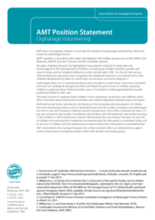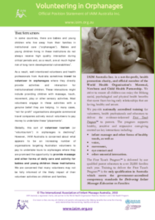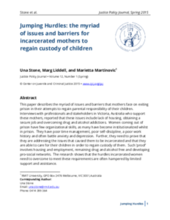Displaying 531 - 540 of 598
A former orphanage director in Victoria, Australia may stand trial for the alleged sexual abuse of children under his care in the institution over 50 years ago.
In this position statement, the Association of Massage Therapists (AMT) of Australia clearly states that it does not endorse orphanage volunteering, referring to the positions of the Better Care Network, UNICEF, Save the Children and the ChildSafe network.
The International Association of Infant Massage in Australia has launched a position paper on volunteering in orphanages in order to address the problem of untrained volunteers being encouraged to conduct child care and infant massage practice in residential care centres, particularly in developing countries.
This paper describes the myriad of issues and barriers that Australian mothers face on exiting prison in their attempts to regain parental responsibility of their children.
In this article, the author explains her perspective on the role of adoption in child protection, particularly in the Australian context.
This article, from the Australian Women’s Weekly, sheds light on the abuses of international surrogacy.
Anglicare, a welfare organization in Australia, is calling for a drastic change in the foster and state care systems, says the article. The organization is advocating for foster care funding to be extended to 21-year-olds.
This review of literature covers international material related to stability and permanence for disabled children, in particular permanence achieved through fostering and adoption.
Two Australian adoptees, taken from their parents as children, are concerned with recent federal government plans in Australia to “streamline” intercountry adoptions.
This report aims to provide the basis for an agenda to improve university attendance among care leavers in Australia by highlighting the nature and extent of the problem, and suggesting practical solutions within both the education and community service sectors.



